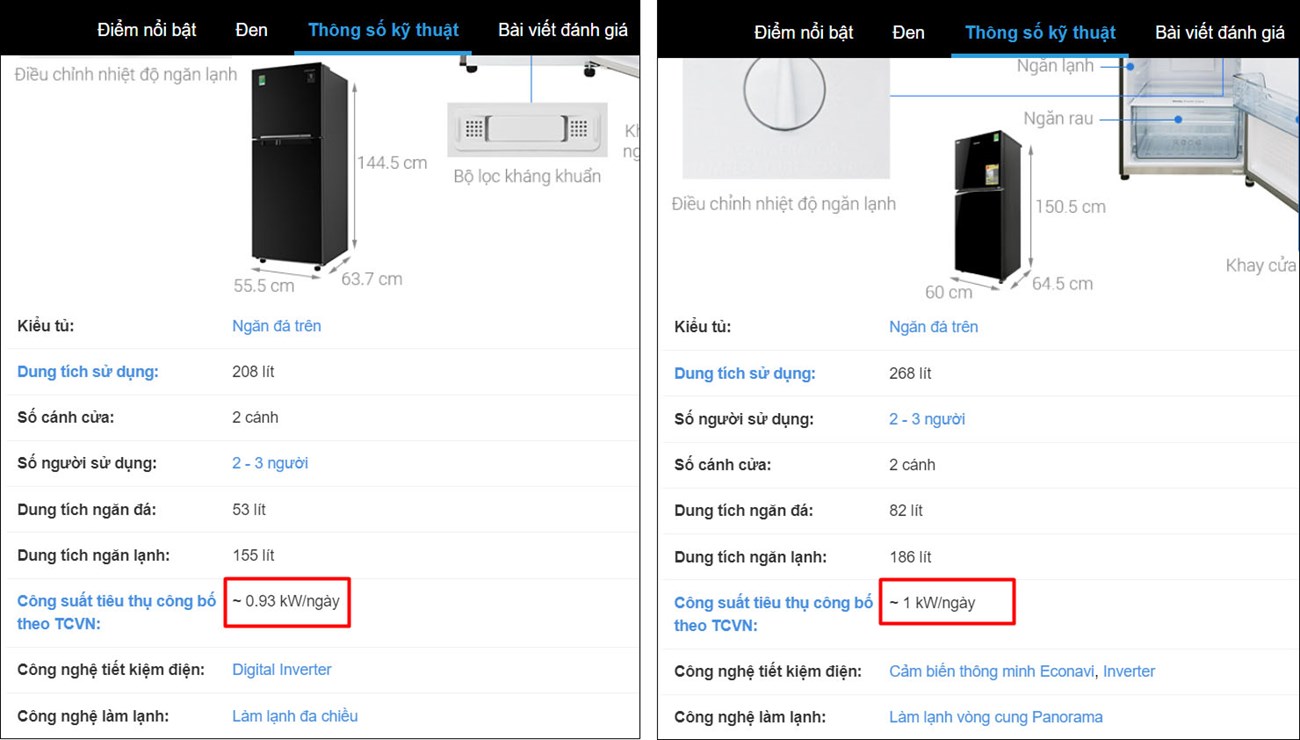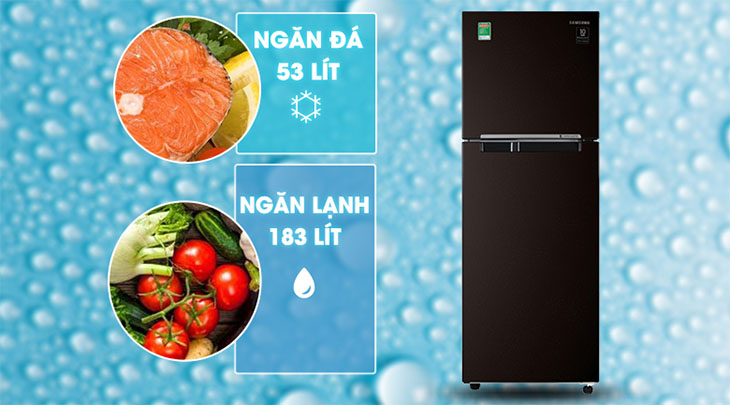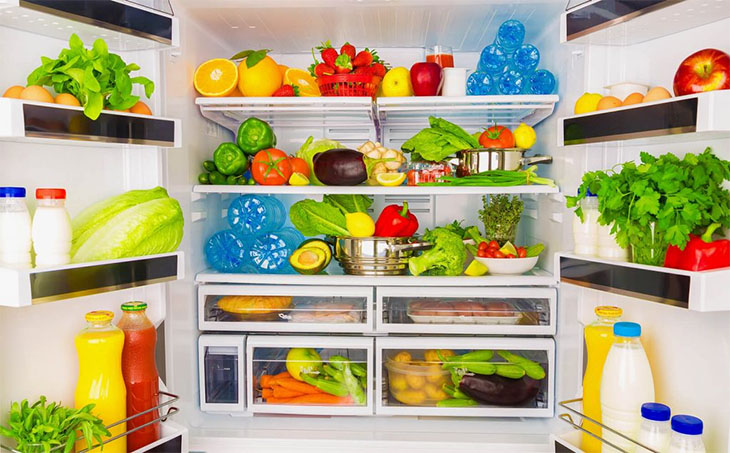Calculating the Daily Power Consumption of a Refrigerator
Calculating Electricity Consumption in One Day
The capacity of the refrigerator is indicated on the energy label attached to the exterior of the refrigerator door. To calculate the power consumption of the refrigerator in a single day, simply multiply the capacity of the refrigerator by 24 hours.
The refrigerator described has a capacity of 90W. When used continuously for 1 day (24 hours), it will consume a total of 2160 Wh.

Typically, the power consumed will be converted to kilowatt-hours (kWh), equivalent to 1000 watt-hours (Wh), commonly denoted as the ‘number of electricity’ or ‘electricity sign’. Consequently, a consumption of 2160 Wh is equivalent to 2.16 kWh or 2.16 units of electricity.
The actual power consumption of refrigerators may vary due to factors such as environmental conditions and the specific model being used. This means that the calculated power consumption may not always accurately reflect real-world usage.
Our website provides accurate and reliable information on refrigerator products, including the electricity consumption index in 1 day. This index has been calculated following the measurement standards set by the Ministry of Industry and Trade of Vietnam.

Calculating the Electricity Bill for a Refrigerator in One Day
According to the official website of Vietnam Electricity Corporation (EVN), the retail price for Level 1 domestic electricity, which applies to kWh usage from 0 to 50, is VND 1,678/kWh.
To illustrate, consider an average electricity consumption of approximately 0.93 kilowatts per day. Therefore, the corresponding cost of electricity for operating a refrigerator for one day is calculated as follows: 0.93 x 1.678 = 1.56 Vietnamese Dong per day.

Saving Electricity with a Refrigerator
How to Select a Refrigerator Based on Your Needs
It is important to select a refrigerator with an appropriate capacity based on the number of family members and their usage needs. Choosing a refrigerator with excessive capacity can result in unnecessary energy consumption.

Please refer to the summary table below to select a refrigerator with the appropriate capacity for your requirements:
| Capacity (Liters) | Suitable For |
|——————-|————–|
| 200+ | Small to medium-sized households |
| 300+ | Medium to large-sized households |
| 400+ | Large-sized households and families with multiple members |
| 500+ | Large-sized households and families with multiple members, who require additional storage space |
| 600+ | Large-sized households and families with multiple members, who require ample storage space |
When choosing a refrigerator, it is crucial to consider your household’s size and storage needs. Opting for a refrigerator with the right capacity ensures that you have enough space to store your groceries and other perishable items.
| Usable capacity | Number of members in the family | Commonly selected cabinet type | Price |
|---|---|---|---|
| Capacity less than 150 liters | 1 – 2 members | Mini or top freezer | Under 5 million |
| Capacity 150 – 300 liters | 2 – 3 members | Top freezer | From 5 million won |
| Capacity 300 – 400 liters | 3-4 members | Bottom freezer | From 7.5 million VND |
| Capacity 400 – 550 liters | 4-5 members | Multiple Doors or Side by Side | From 13 million won |
| Capacity over 550 liters | More than 5 members | Multiple Doors or Side by Side | From 14 million won |
Ensuring Adequate Supplies of Food in the Refrigerator
It is important to maintain an appropriate amount of food in the refrigerator to ensure its optimal performance. Overfilling the refrigerator prevents the proper circulation of cold air, compromising its ability to effectively preserve food. Thus, it is advisable to keep a sufficient amount of food while allowing ample space for the refrigerator to radiate cold air efficiently.
Storing an appropriate amount of food in the refrigerator is crucial for maintaining its efficiency. Insufficient food can lead to the loss of cold air and excessive workload on the compressor, resulting in higher power consumption. Conversely, an excess of food can also impede the circulation of cold air. Therefore, it is recommended to store a moderate amount of food to allow for proper heat balance and prolonged preservation of cold air.

Warning: Prolonged Refrigerator Door Opening Can Have Consequences
Frequent or prolonged opening of the refrigerator door can lead to increased power consumption due to the compressor constantly adjusting the temperature to maintain a cold environment inside. Therefore, it is advisable to minimize such behaviors to conserve energy.

Advice on How to Maintain a Clean Refrigerator
Maintaining a clean refrigerator is essential for preventing the growth of bacteria and mold, as well as optimizing heat dissipation. It is particularly important to regularly clean the refrigeration unit located behind the refrigerator, as this area is prone to accumulating dirt. By keeping your refrigerator clean, you can ensure its efficiency and prolong its lifespan.
To ensure optimal performance and energy-saving operation, it is recommended to periodically clean your refrigerator. Ideally, this should be done every 1-2 months.
Additionally, it is important to check the refrigerant gas levels annually and recharge it as necessary. This will prevent compressor overload and unnecessary electricity consumption.

The article explains the methodology for calculating the power consumption of a basic refrigerator, as well as provides guidance on using energy-efficient refrigerators. For further discussions and sharing with friends, feel free to comment below the article.
How to Get Rid of Fishy Smells in the Refrigerator
Struggling to keep your fridge smelling fresh? Dien May Xanh has some tips to help, from finding the source of bad smells to preserving foods so they last longer.
























 Refrigerator
Refrigerator








